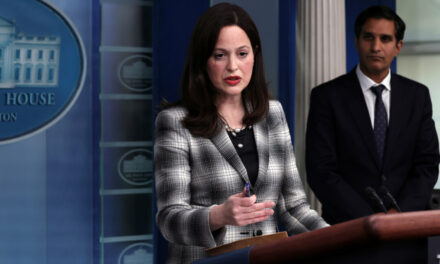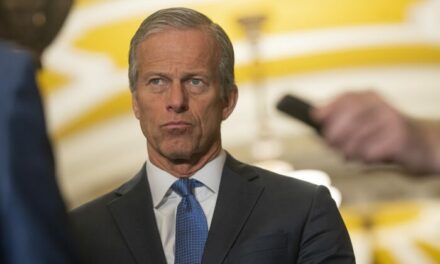We support our Publishers and Content Creators. You can view this story on their website by CLICKING HERE.
In a 218–215 vote, Johnson was elected on the first ballot in spite of short-lived hiccups early in the vote.
The U.S. House of Representatives on Jan. 3 elected Rep. Mike Johnson (R-La.) to reprise his role leading the lower chamber.
In a 218–215 vote, Johnson was elected on the first ballot despite short-lived hiccups early in the vote.
There were initially signs of a brewing mutiny among the House GOP caucus, as several members—beginning with Reps. Thomas Massie (R-Ky.) and Chip Roy (R-Texas)—expressed reservations or outright opposition to Johnson.
Normally, that wouldn’t be a problem, but with Republicans controlling just 219 seats, one above the majority threshold, Johnson needed the support of all but one member of his conference.
Despite President-elect Donald Trump’s endorsement of Johnson, there was no certainty about the outcome as the 119th Congress gathered for its opening day.
Johnson promised spending reforms, audits of federal agencies’ budgets, and “aggressive authorizations and appropriations reviews.”
He said, “Republicans have a mandate to implement the America First Agenda, and as Speaker, this will be my priority.”
These promises are tailor-made for House conservatives who have been unhappy with Johnson’s past decision on government funding and spending legislation.
Though Johnson initially looked poised to fail on the first ballot, he ultimately managed to convince defectors to switch their votes.
In the first tabulation of voting, Johnson received 216 votes, House Minority Leader Hakeem Jeffries (D-N.Y.) received 215, and three ballots were cast for other Republicans.
Massie voted for Rep. Tom Emmer (R-Minn.), the GOP whip.
Rep. Ralph Norman (R-S.C.) became the second defector, voting for House Judiciary Committee Chairman Jim Jordan (R-Ohio), while Rep. Keith Self (R-Texas) followed up with a vote for Rep. Byron Donalds (R-Fla.).
Many members associated with the House Freedom Caucus abstained on that ballot, including the current chairman of the caucus, Rep. Andy Harris (R-Md.).
Other abstentions came from Rep. Andy Biggs (R-Ariz.), a former chairman of the conservative House Freedom Caucus and critic of Johnson, and Reps. Michael Cloud (R-Texas), Andrew Clyde (R-Ga.), Paul Gosar (R-Ariz.), and Chip Roy (R-Texas), who abstained when their names were called despite being present in the chamber.
They changed their support at the end of the first ballot to hedge off a scenario in which Jeffries would inadvertently be elected.
Several other conservatives did back Johnson from the first ballot on.
That included Rep. Scott Perry (R-Pa.), another former leader of the House Freedom Caucus.
Rep. Lauren Boebert (R-Colo.) also voted for Johnson, but made clear she expected him to earn her support.
“Don’t let us down, Mr. Speaker,” Boebert said.
Rep. Eli Crane (R-Ariz.), another conservative member of the House Freedom Caucus, spoke softly when his name was called, though he did back Johnson.

 Conservative
Conservative  Search
Search Trending
Trending Current News
Current News 







